Uncategorized
Talks adopt ‘rulebook’ to put Paris climate deal into action

KATOWICE, Poland — Almost 200 nations, including the world’s top greenhouse gas producers, China and the United States, have adopted a set of rules meant to breathe life into the 2015 Paris climate accord by setting out how countries should report their emissions and efforts to reduce them.
But negotiators delayed other key decisions until next year — a move that frustrated environmentalists and countries that wanted more ambitious goals in light of scientists’ warnings that the world must shift sharply away from fossil fuels in the coming decade.
“The majority of the rulebook for the Paris agreement has been created, which is something to be thankful for,” said Mohamed Adow, a climate policy expert at Christian Aid. “But the fact countries had to be dragged kicking and screaming to the finish line shows that some nations have not woken up” to the dire consequences of global warming as outlined in a report by the U.N Panel on Climate Change, or IPCC.
Officials at the talks, which ended late Saturday in the Polish city of Katowice, agreed upon universal rules on how nations can cut emissions. Poor countries secured assurances on financial support to help them reduce emissions, adapt to changes such as rising sea levels and pay for damage that has already happened.
“Through this package, you have made a thousand little steps forward together,” said Michal Kurtyka, a senior Polish official who led the talks.
While each country would likely find some parts of the agreement it did not like, he said, efforts were made to balance the interests of all parties.
“We will all have to give in order to gain,” he said. “We will all have to be courageous to look into the future and make yet another step for the sake of humanity.”
The talks took place against a backdrop of growing concern among scientists that global warming is proceeding faster than governments are responding to it. Last month, a study found that global warming will worsen disasters such as the deadly California wildfires and the powerful hurricanes that have hit the United States this year.
The recent report by the IPCC concluded that while it’s possible to cap global warming at 1.5 degrees Celsius (2.7 degrees Fahrenheit) by the end of the century compared to pre-industrial times, doing so would require a dramatic overhaul of the global economy, including a shift away from fossil fuels.
Alarmed by efforts to include that idea in the final text of the meeting, the oil-exporting nations of the U.S., Russia, Saudi Arabia and Kuwait blocked an endorsement of the IPCC report midway through this month’s talks. That prompted uproar from vulnerable countries like small island nations and environmental groups.
The final text omitted a previous reference to specific reductions in greenhouse gas emissions by 2030 and merely welcomed the “timely completion” of the IPCC report, not its conclusions.
Johan Rockstrom, a scientist who helps to lead the Potsdam Institute for Climate Impact Research, called the agreement “a relief.” The Paris deal, he said, “is alive and kicking, despite a rise in populism and nationalism.”
His biggest concern, he said, is that the summit “failed to align ambitions with science, in particular missing the necessity of making clear that global emissions from fossil fuels must be cut by half by 2030” to stay in line with the IPCC report.
Alden Meyer, director of strategy and policy at the Union of Concerned Scientists, said the talks created “a solid foundation for implementation and strengthening” of the Paris agreement and could help bring the U.S. back into the deal by a future presidential administration.
One major sticking point was how to create a functioning market in carbon credits. Economists believe that an international trading system could be an effective way to drive down greenhouse gas emissions and raise large amounts of money for measures to curb global warming.
But Brazil wanted to keep the piles of carbon credits it had amassed under an old system that developed countries say wasn’t credible or transparent.
Among those that pushed back hardest was the United States, despite President Donald Trump’s decision to pull out of the Paris climate accord and his promotion of coal as a source of energy.
“Overall, the U.S. role here has been somewhat schizophrenic — pushing coal and dissing science on the one hand, but also working hard in the room for strong transparency rules,” said Elliot Diringer of the Center for Climate and Energy Solutions, a Washington
The U.S. is still technically in the Paris agreement until 2020, which is why American officials participated in the Katowice talks.
When it came to closing potential loopholes that could allow countries to dodge their commitments to cut emissions, “the U.S. pushed harder than nearly anyone else for transparency rules that put all countries under the same system, and it’s largely succeeded,” Diringer said.
In the end, a decision on the mechanics of an emissions-trading system was postponed to next year’s meeting. Countries also agreed to consider the issue of raising ambitions at a U.N. summit in New York next September.
Canada’s Environment Minister Catherine McKenna suggested there was no alternative to such meetings if countries want to tackle global problems, especially as multilateral diplomacy is under pressure from nationalism.
“The world has changed. The political landscape has changed,” she told The Associated Press. “Still you’re seeing here that we’re able to make progress. We’re able to discuss the issues. We’re able to come to solutions.”
___
Read more stories on climate issues by The Associated Press at https://www.apnews.com/Climate .
Frank Jordans, The Associated Press
Uncategorized
Trump Admin Establishing Council To Make Buildings Beautiful Again


From the Daily Caller News Foundation
By Jason Hopkins
The Trump administration is creating a first-of-its-kind task force aimed at ushering in a new “Golden Age” of beautiful infrastructure across the U.S.
The Department of Transportation (DOT) will announce the establishment of the Beautifying Transportation Infrastructure Council (BTIC) on Thursday, the Daily Caller News Foundation exclusively learned. The BTIC seeks to advise Transportation Secretary Sean Duffy on design and policy ideas for key infrastructure projects, including highways, bridges and transit hubs.
“What happened to our country’s proud tradition of building great, big, beautiful things?” Duffy said in a statement shared with the DCNF. “It’s time the design for America’s latest infrastructure projects reflects our nation’s strength, pride, and promise.”
“We’re engaging the best and brightest minds in architectural design and engineering to make beautiful structures that move you and bring about a new Golden Age of Transportation,” Duffy continued.
Mini scoop – here is the DOT’s rollout of its Beautifying Transportation Infrastructure Council, which will be tasked with making our buildings beautiful again. pic.twitter.com/
9iV2xSxdJM — Jason Hopkins (@jasonhopkinsdc) October 23, 2025
The DOT is encouraging nominations of the country’s best architects, urban planners, artists and others to serve on the council, according to the department. While ensuring that efficiency and safety remain a top priority, the BTIC will provide guidance on projects that “enhance” public areas and develop aesthetic performance metrics.
The new council aligns with an executive order signed by President Donald Trump in August 2025 regarding infrastructure. The “Making Federal Architecture Beautiful Again” order calls for federal public buildings in the country to “respect regional architectural heritage” and aims to prevent federal construction projects from using modernist and brutalist architecture styles, instead returning to a classical style.
“The Founders, in line with great societies before them, attached great importance to Federal civic architecture,” Trump’s order stated. “They wanted America’s public buildings to inspire the American people and encourage civic virtue.”
“President George Washington and Secretary of State Thomas Jefferson consciously modeled the most important buildings in Washington, D.C., on the classical architecture of ancient Athens and Rome,” the order continued. “Because of their proven ability to meet these requirements, classical and traditional architecture are preferred modes of architectural design.”
The DOT invested millions in major infrastructure projects since Trump’s return to the White House. Duffy announced in August a $43 million transformation initiative of the New York Penn Station in New York City and in September unveiledmajor progress in the rehabilitation and modernization of Washington Union Station in Washington, D.C.
The BTIC will comprise up to 11 members who will serve two-year terms, with the chance to be reappointed, according to the DOT. The task force will meet biannually. The deadline for nominations will end Nov. 21.
Uncategorized
New report warns WHO health rules erode Canada’s democracy and Charter rights

The Justice Centre for Constitutional Freedoms has released a new report titled Canada’s Surrender of Sovereignty: New WHO health regulations undermine Canadian democracy and Charter freedoms. Authored by Nigel Hannaford, a veteran journalist and researcher, the report warns that Canada’s acceptance of the World Health Organization’s (WHO) revised International Health Regulations (IHR) represents a serious erosion of national independence and democratic accountability.
The IHR amendments, which took effect on September 19, 2025, authorize the WHO Director-General to declare global “health emergencies” that could require Canada to follow directives from bureaucrats in Geneva, bypassing the House of Commons and the will of Canadian voters.
The WHO regards these regulations as “binding,” despite having no ability or legal authority to impose such regulations. Even so, Canada is opting to accept the regulations as binding.
By accepting the WHO’s revised IHR, the report explains, Canada has relinquished its own control over future health crises and instead has agreed to let the WHO determine when a “pandemic emergency” exists and what Canada must do to respond to it, after which Canada must report back to the WHO.
In fact, under these International Health Regulations, the WHO could demand countries like Canada impose stringent freedom-violating health policies, such as lockdowns, vaccine mandates, or travel restrictions without debate, evidence review, or public accountability, the report explains.
Once the WHO declares a “Pandemic Emergency,” member states are obligated to implement such emergency measures “without delay” for a minimum of three months.
Importantly, following these WHO directives would undermine government accountability as politicians may hide behind international “commitments” to justify their actions as “simply following international rules,” the report warns.
Canada should instead withdraw from the revised IHR, following the example of countries like Germany, Austria, Italy, Czech Republic, and the United States. The report recommends continued international cooperation without surrendering control over domestic health policies.
Constitutional lawyer Allison Pejovic said, “[b]y treating WHO edicts as binding, the federal government has effectively placed Canadian sovereignty on loan to an unelected international body.”
“Such directives, if enforced, would likely violate Canadians’ Charter rights and freedoms,” she added.
Mr. Hannaford agreed, saying, “Canada’s health policies must be made in Canada. No free and democratic nation should outsource its emergency powers to unelected bureaucrats in Geneva.”
The Justice Centre urges Canadians to contact their Members of Parliament and demand they support withdrawing from the revised IHR to restore Canadian sovereignty and reject blind compliance with WHO directives.
-

 Agriculture2 days ago
Agriculture2 days agoFrom Underdog to Top Broodmare
-
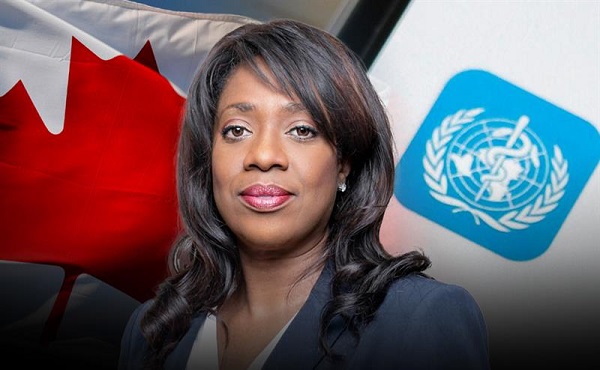
 Health2 days ago
Health2 days agoSovereignty at Stake: Why Parliament Must Review Treaties Before They’re Signed
-

 Business2 days ago
Business2 days ago$15B and No Guarantees? Stellantis Deal explained by former Conservative Shadow Minister of Innovation, Science and Technology
-
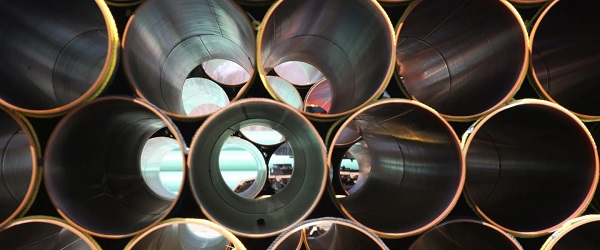
 Energy18 hours ago
Energy18 hours agoB.C. premier’s pipeline protestations based in fallacy not fact
-
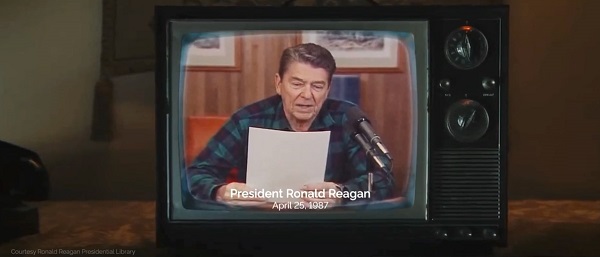
 Business18 hours ago
Business18 hours ago‘TERMINATED’: Trump Ends Trade Talks With Canada Over Premier Ford’s Ronald Reagan Ad Against Tariffs
-

 Uncategorized5 hours ago
Uncategorized5 hours agoTrump Admin Establishing Council To Make Buildings Beautiful Again
-
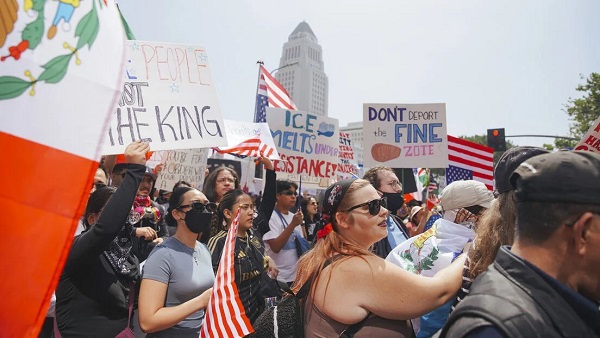
 Bruce Dowbiggin2 days ago
Bruce Dowbiggin2 days agoWhile America Shrugs Off Woke, Canada Doubles Down On Feminizing Society
-
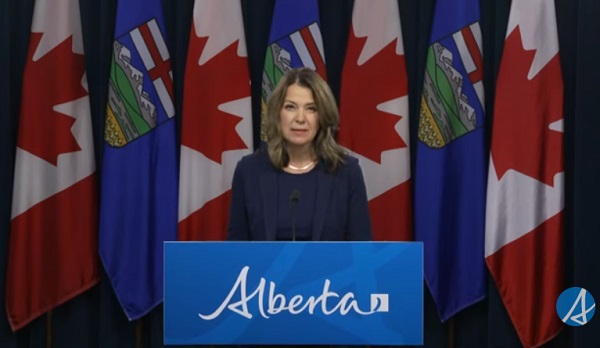
 Alberta1 day ago
Alberta1 day agoPremier Smith moves to protect Alberta in International Agreements







